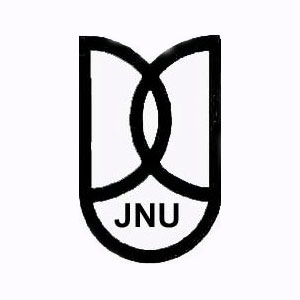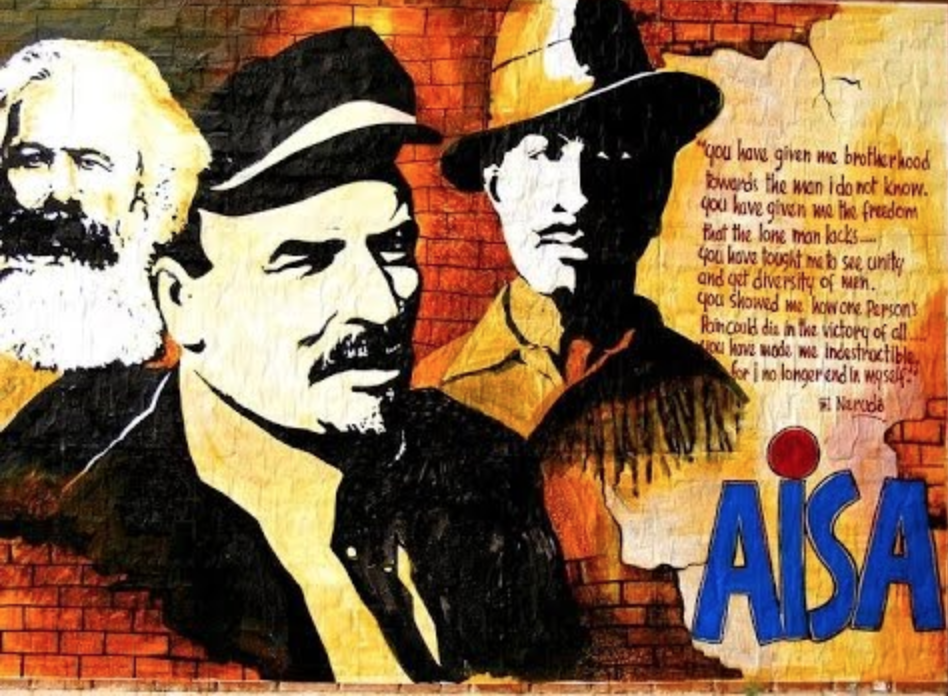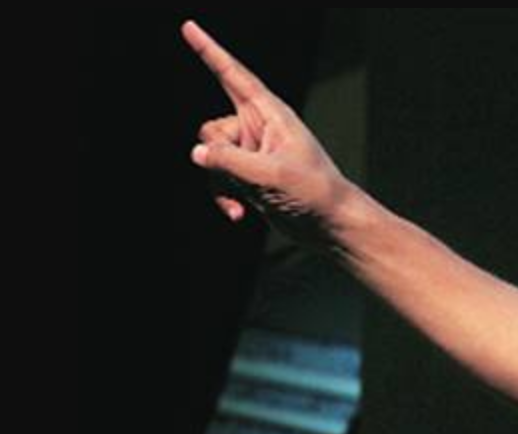The American poet bell hooks might have been speaking about the situation in JNU today: “Sometimes people try to destroy you, precisely because they recognize your power — not because they don’t see it, but because they see it and they don’t want it to exist.”
In my thirty plus years at JNU, I have rarely spoken in a public meeting, but when asked to do so on “What JNU has contributed in the Sciences” on 28 February this year, I felt I must. Partly because it is getting increasingly difficult to fight the losing battle of public perception versus ground reality, and also, because I was provoked by a recent public discussion on Lok Sabha TV, where blatant lies were broadcast, and the participants congratulated each other on their moral positions, each ever so smug and self-righteous.
Day after day there is an article in one or the other medium, with JNU faculty trying their best to explain just what the issues are to those who are not at JNU. This is not a case of “us” explaining to “them”, but there is more than a little schadenfreude in the point of view that cannot see what the fuss is all about. Not to mention a number of articles devolving around what-about-when-X-did-Y-to-Z…
 None of which can account for the slow and painful killing of an excellent university. And what lies at the heart of this heinous action is the basic incomprehension of what a modern university is, or indeed what a modern Indian university should be.
None of which can account for the slow and painful killing of an excellent university. And what lies at the heart of this heinous action is the basic incomprehension of what a modern university is, or indeed what a modern Indian university should be.
When I moved to JNU in 1986, one of the main things that attracted me to the university was that it was a graduate school. The School of Physical Sciences was started that year by then Vice Chancellor P N Srivastava with the idea that it would be a school of studies that recognized no disciplinary boundaries within the physical sciences. Having been at places where (in today’s language) the silos were impenetrable, it seemed like more than a breath of fresh air. For mainly professional reasons and some personal ones, I was happy to move to JNU from the institute I was at in Mumbai.

Some things about JNU seemed wonderful. The size, for one- it seemed to have so many more possibilities with four times the number of teachers and fifty times the number of students, not to mention the acreage, which was about fifty times as large as well. The number of disciplines – there were 8 Schools in JNU then (SIS, SLLCS, SSS, SES, SLS, SCSS, the old ones) and SPS and SAA, the new ones. There were some special Centres as well (some of which are now Schools in their own right), but the academic environment was rich compared to the smaller and more specialist campus I had been a part of in the preceding few years. It was a small matter that many people thought that we were a School of Physical Education, formed along with a School of Arts and Athletics… those were the initial days and we hardly cared.
The atmosphere was even more wonderful. This was a short enough time after 1983, and the memories of the earlier times were strong. The campus was politically alive, and the Ph D students who trickled into the School of Physical Sciences – 4 in 1987, 5 in 1988, maybe 6 or 7 in 1989, and so on – brought in the culture of the rest of the campus into our growing School. Our Ph D students of the early days were mostly all resident in the hostels, so we indirectly got to hear of what was discussed, the issues that were debated, and above all, we got to see first hand what an enabling campus the JNU was. Our students came from a very different demographic than the students at most institutes, and we could see first hand the change that JNU brought about in their lives, as indeed it did in ours.
 There were also some not so pleasant aspects of being at JNU. One was the two culture divide, caused in part by the huge disparity in size between the science Schools and the much larger Schools of International Studies, Language, and Social Sciences. The SPS was very small, even after we started the MSc in Physics, in 1991 or 1992. The students were younger and there were more of them, but still we were a mere ripple in the JNU, and some of the rules and regulations that were needed for a small cohort were not always in consonance with what the larger body had decided. But we went along, for the most part happy to be part of a public university, and adapting to the changes that were needed.
There were also some not so pleasant aspects of being at JNU. One was the two culture divide, caused in part by the huge disparity in size between the science Schools and the much larger Schools of International Studies, Language, and Social Sciences. The SPS was very small, even after we started the MSc in Physics, in 1991 or 1992. The students were younger and there were more of them, but still we were a mere ripple in the JNU, and some of the rules and regulations that were needed for a small cohort were not always in consonance with what the larger body had decided. But we went along, for the most part happy to be part of a public university, and adapting to the changes that were needed.
One of the most remarkable aspects of JNU was the position of students vis-a-vis the faculty. From the earliest times, the sense of participation of all students in university matters has been complete, be it at the level of governance or at the level of pedagogy- students have been able to participate in decision making, and indeed their opinions have been sought and respected. Most students (other than in the languages, that is) at JNU entered the university after a Bachelor’s degree elsewhere at the very least- and were therefore also adults for the most part. And they were treated as such, in terms of their responsibilities, in terms of our expectations of them, and in the way in which we dealt with them and their various issues.
 Which is why, when in 2017 or 2018, the University administration does not condescend to talk to students let alone treat them as sentient beings capable of making their own choices, it seems an aberration. To be fair to the Administration (with the capital A) they do not talk to teachers either – unless one conforms to an archaic mode of conduct- but in the process, the entire University, teachers and students alike, is given the “Daddy knows best” line, and it is up to us to conform.
Which is why, when in 2017 or 2018, the University administration does not condescend to talk to students let alone treat them as sentient beings capable of making their own choices, it seems an aberration. To be fair to the Administration (with the capital A) they do not talk to teachers either – unless one conforms to an archaic mode of conduct- but in the process, the entire University, teachers and students alike, is given the “Daddy knows best” line, and it is up to us to conform.
This process of infantilization is simply unacceptable.
It is tiresome to repeat the arguments of why the attendance issue is being misrepresented, and why it could and should have been done better, so I shall not. But as one who has taught at JNU for the past thirty or so years, I know that the real issue is of learning. Over time, the nature of pedagogy has changed, not just in JNU but also all across the world. The internet, the availability of online material, YouTube, Wikipedia, more books and better libraries- all of this has democratized the classroom as never before. To be sure, teachers are still needed, but our roles have evolved in a fundamental and significant way, something that the purveyors of attendance sheets cannot realize. The focus has to shift to evaluating outcomes fairly, to know what students have acquired and to ensure that they have learned the skills they need and not to ensure that they have 75% attendance. That is simply not the point, and in short, they.just.don’t.get.it.

And regrettably, they cannot realize it because, at a deep and fundamental level, the real reason that they just don’t get it is because they simply are not very capable. It can indeed be difficult to have to cope with not being very good… being fairly mediocre and knowing it can be a difficult cross to bear. The knowledge also that come what may, try as one might, one is never going to quite make the cut: When mediocrity is coupled with authority, the combination is toxic.
There are many things that need to change in JNU, and those that have lived with it for the past so many years are best placed to advise on what is needed and how best to make the change. The hostels need better administration, for sure. The fees need to be rationalised to a less embarrassing level: the JNU annual tuition fees have not changed in years, the hostel charges are unrealistic, and this is against a backdrop where salaries and scholarships have been growing, keeping pace with the growth of the economy in fair measure. One can list more, indeed several more things that need change, but this should, in the best spirit of the campus, be done through discussion, through debate. Not via edicts, and certainly not under the pretence of having had decisions passed in the Academic Council when they were not. Or by the fabrication, the fraudulent claim that letters of support were strongly endorsed when the eminent alleged signatories simply deny ever having done so. A shame that it has come down to this.
There is a peculiar stillness in the University today – a disquiet and a lack of enthusiasm that does not bode well. Dialogue is out, and in some sections, so is hope. Many of the things that the old JNU fought for and implemented have been done away with, and the price to be paid is that the campus demographic will change significantly in these few years. And then, there will be no one left to care.
